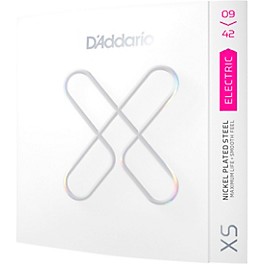6 String Sets for Electric Guitar
Relevance
1 matches found
New Arrival
- Previous
- 1
- Next
It's okay to replace a single string when necessary, but keep in mind that all the strings should be changed from time to time as part of your routine maintenance. To keep the guitar sounding its best, it's a good idea to get your strings in full sets so you can replace them all at once—this lets you make sure that they'll all sound just as fresh and new.
If you're moving from acoustic to electric guitar for the first time, you might be surprised not to find bronze and brass strings in the selection. That's because they're not magnetic, and as a result, they don't work with electric pickups. In lieu of those acoustic classics, the three primary choices in sets for a 6-string electric guitar are steel, nickel-plated steel and nickel. Going back all the way to the original electric guitars of the 1950s, pure nickel strings are known for their subdued vintage sounds. Steel strings emerged later to cater to the growing desire for loud, punchy tone in the evolving rock and roll genre, and that's still their strength today. Nickel-plated steel strings are the most popular on the present-day stage, striking a happy medium where the core strength and resonance of steel meets the softer edge of nickel.
The gauge of the string may be an even more important factor than the material, however. Gauge represents a string's thickness, which affects the amount of tension it needs and the way it vibrates. Heavier-gauge strings deliver meatier tones with big sustain, making them a staple for rhythm guitar as well as powerful chords for metal and hard rock. On the other hand, lighter gauges are brighter and clearer-sounding as well as being more flexible and easier to fret, which is perfect for beginners to learn on or for veterans to nail those fast and tricky leading riffs. The most important takeaway about electric guitar strings, though, is that there's no right or wrong. The right strings are a matter of preference, and it'll take some experimentation with different materials and gauges in order for you to decide for sure which ones are right for you. Don't be afraid to "audition" as many sets as you like: it's all part of crafting your own signature sound.

